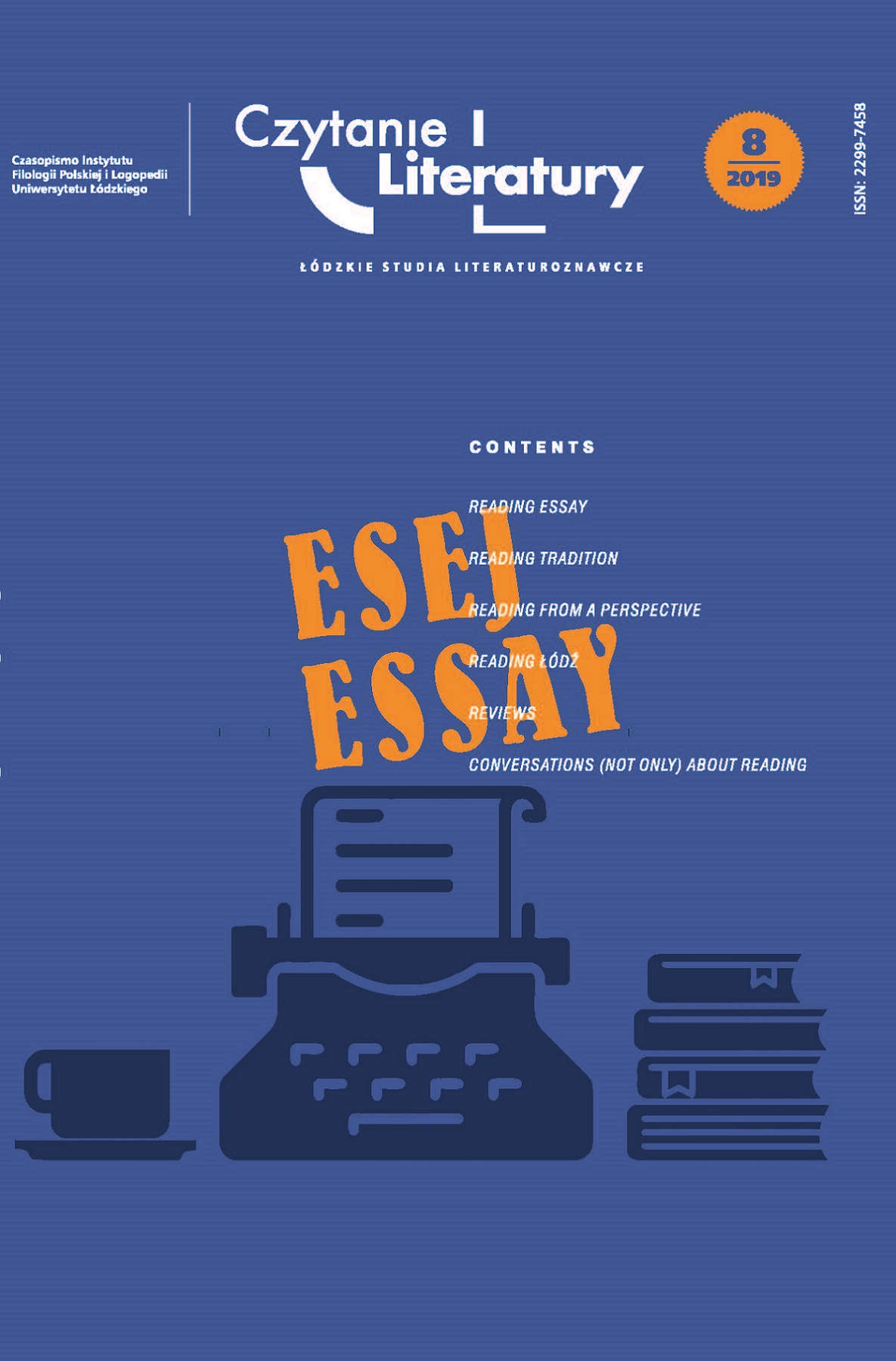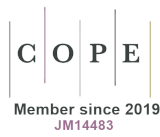Svetlana Slapšak’s Feminist Essay: A Polygraph of Contemporary Culture
DOI:
https://doi.org/10.18778/2299-7458.08.12Słowa kluczowe:
Serbian contemporary essay, feminism, textual interventions, power of objection, Svetlana SlapšakAbstrakt
The article discusses the problem of the theory and practice of contemporary Serbian feminist essay. The text indicates how – at the turn of the 21st century – the essay participated in the reading of the nationalist culture of fear during the breakup of Yugoslavia, how it became the tool for creating an analytical and methodological platform and a means of quick anthropological and cultural diagnoses, as well as a form of transfer of social or philosophical notions. This new strategy of the essay was illustrated through the examples of books by Svetlana Slapšak, a leading figure of the (sub)genre in the Serbian culture, a professor of cultural anthropology, classical philologist, and feminist critic: Mala crna haljina. Eseji o antropologiji i feminizmu (1993/2007, Little Black Dress. Essays on Anthropology and Feminism), Ženske ikone XX veka (2001, Female Icons of the 20th Century), Ženske ikone antičkog sveta (2006, Female Icons of the Antiquity), Antička miturgija: žene (2013, Antique Mythurgy: Women). It becomes clear that one of the trends of the contemporary essay in the Serbian and post-Yugoslav cultures is the application of the genre in the spirit of modern engaged humanities and textual intervention.
Pobrania
Bibliografia
Barnes J.A., A Structural Amnesia, [in:] J.A. Barnes, Models and Interpretations. Selected Essays, Cambridge 1947.
Google Scholar
Bednarek J., Linie kobiecości. Jak różnica płciowa przekształciła literaturę i filozofię?, Warsaw 2015.
Google Scholar
Brach-Czaina J., Błony umysłu, Warsaw 2003.
Google Scholar
Brach-Czaina J., Szczeliny istnienia, Warsaw 2018.
Google Scholar
Chmielewska K., Jak możliwa jest poetyka (eseju)?, “ Teksty Drugie” 2001, issue 3/4, pp. 134-138.
Google Scholar
Domańska E., Historia egzystencjalna. Krytyczne studium narratywizmu i humanistyki zaangażowanej, Warsaw 2012.
Google Scholar
Encyclopedia of the Essay, ed. T. Chevalier, London–Chicago 1997.
Google Scholar
Hilsbecher W., Esej o eseju, [in:] W. Hilsbecher, Tragizm, absurd i paradoks. Eseje, selection and introduction by S. Lichański, transl. S. Bałut, Warsaw 1972.
Google Scholar
Эпштейн Михаил Наумович, ПАРАДОКСЫ НОВИЗНЫ. О литературном развитии Х1Х-ХХ веков, Москва 1988.
Google Scholar
Линија испод које се не може ићи, Разговор са Светланом Слапшак водиле Биљана Дојчиновић и Ана Коларић, „Књиженство: часопис за студије књижевности, рода и културе”, 6/2016. http://www.knjizenstvo.rs/magazine.php
Google Scholar
Markowski M.P., Czy możliwa jest poetyka eseju?, [in:] Poetyka bez granic: Z Dziejów Form Artystycznych w Literaturze Polskiej, eds. W. Bolecki, W. Tomasik, Warsaw 1995.
Google Scholar
Nycz R., Kultura jako czasownik. Sondowanie nowej humanistyki, Warsaw 2017.
Google Scholar
Rosić T., Feministički esej u srpskoj književnosti i raspad Jugoslavije, “Književna istorija” 2015, vol. XLVII, issue 157, pp. 233-254.
Google Scholar
Sendyka R., Nowoczesny esej. Studium historycznej świadomości gatunku, Kraków 2006.
Google Scholar
Sendyka R., Od kultury „ja” do kultury „siebie”. O zwrotnych formach w projektach tożsamościowych, Kraków 2015.
Google Scholar
Slapšak S., Mala crna haljina. Eseji o anropologiji i feminizmu, transl. from Slovenian J. Petrović, Belgrade 2007.
Google Scholar
Slapšak S., Žene, Jugoslavija, antikomunistička narkoza i novi kolonijalizam: mape, putevi, izlazi, “Poznańskie Studia Slawistyczne” 2013, issue 5, pp. 249-263.
Google Scholar
DOI: https://doi.org/10.14746/pss.2013.5.18
Slapšak S., Ženske ikone XX veka, Belgrade 2001.
Google Scholar
Slapšak S., Ženske ikone antičkog sveta, Belgrade 2006.
Google Scholar
Šalgo J., Četiri fantazije na temu: esej, [in:] J. Šalgo, Jednokratni eseji, ed. V. Pavković, Belgrade 2000.
Google Scholar
The Politics of the Essay. Feminist Perspectives, eds. R.E. Boetcher Joers, E. Mittman, Bloomington 1993.
Google Scholar
Pobrania
Opublikowane
Jak cytować
Numer
Dział
Licencja

Utwór dostępny jest na licencji Creative Commons Uznanie autorstwa – Użycie niekomercyjne – Bez utworów zależnych 4.0 Międzynarodowe.










